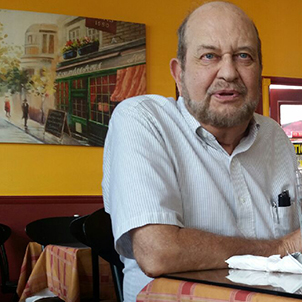There’s a good chance that using union dues for politics will become harder within a year or two. One thing for sure: Big labor will not easily accept that kind of new reality.
Three times in the past 15 years, ballot initiative campaigns led by conservative Republicans tried unsuccessfully to truncate the power and influence of California’s labor unions, both public employee organizations and others.
“Paycheck protection” was the label applied to those efforts, which sought to prevent unions from using dues money raised via automatic payroll deductions for political purposes. The most recent such effort, in 2012, looked to force unions to get authorization each year from each member before their dues money could be used for candidate contributions, canvassing for votes or circulating initiative petitions.
Labor unions pushed back each time, claiming that if paycheck protection ever becomes law, the political playing field will be tilted strongly to the right, with the U.S. Supreme Court’s Citizens United decision allowing almost unlimited contributions from billionaires and businesses, while unions would have one hand tied behind their backs.
The union arguments prevailed politically, but conservatives did not give up. Rather than appeal to voters, since 2012, they’ve tried to convince judges.
They came very close to winning this long-running battle last year, when the case of Friedrichs vs. the California Teachers Assn. (CTA), taking the name of Orange County schoolteacher Rebecca Friedrichs, a dues-for-politics opponent, was turned down on a 4-4 U.S. Supreme Court vote soon after the death of conservative Justice Antonin Scalia.
Now, the high court may be about to take up a similar case from Illinois, and with new Justice Neil Gorsuch expected to join the panel’s four previous conservative judges in backing paycheck protection, the idea might win.
At least in California, unions are not taking this lying down. One huge public employee union is about to hike the fees it charges members who don’t want to fund its political advocacy. Local 1000 of the Service Employees International Union, state government’s largest union, is raising the minimum amount of dues it charges those employees by 6 percent, or about $5 per month each. The increase comes under a state law allowing unions to charge employees who are not full members for legal and bargaining expenses run up for the sake of workers.
Doing Their Bidding
At the same time, the CTA – by far the state’s largest teachers union and a major political factor for decades – got its friends in the Legislature and Gov. Brown to back two state budget trailer bills requiring school districts, cities, counties and other government agencies to give unions representing their workers regular chances to meet and sign up new members.
The unions realize that unless they do something, their membership and influence will decline sharply as many conservative-leaning union members – long forced to pay for labor’s political advocacy whether they like it or not – start opting out if paycheck protection becomes federal law. Some estimates put possible union losses between 20 percent and 40 percent of their current political revenues – unless they recruit heavily.
But school districts and other agencies will have the right to negotiate terms of those union recruiting meetings. This may delay their start indefinitely or cause them to be very brief.
Union fears were well expressed the other day by Joshua Pechthalt, president of the state’s second-largest teacher union, the California Federation of Teachers, who told a reporter that “Anything to mitigate a loss of membership would be helpful.” He added that if paycheck protection becomes law, “Our world will change dramatically. (So) having time to talk about what we do, who we are…will become doubly important.”
One group that could opt out en masse of all so-called “agency fees,” the dues charged now to employees who don’t actually belong to unions that bargain for them, is part-time teachers at community colleges and Cal State campuses.
For sure, California has a lot riding on the likely new Supreme Court case. But whatever happens, don’t expect unions to accept it meekly. The new meet-and-greet law is likely only their first move toward retaining and possibly expanding their current powerful role.
Mr. Elias is author of the current book “The Burzynski Breakthrough: The Most Promising Cancer Treatment and the Government’s Campaign to Squelch It,” now available in an updated third edition. He may be contacted www.tdelias@aol.com

